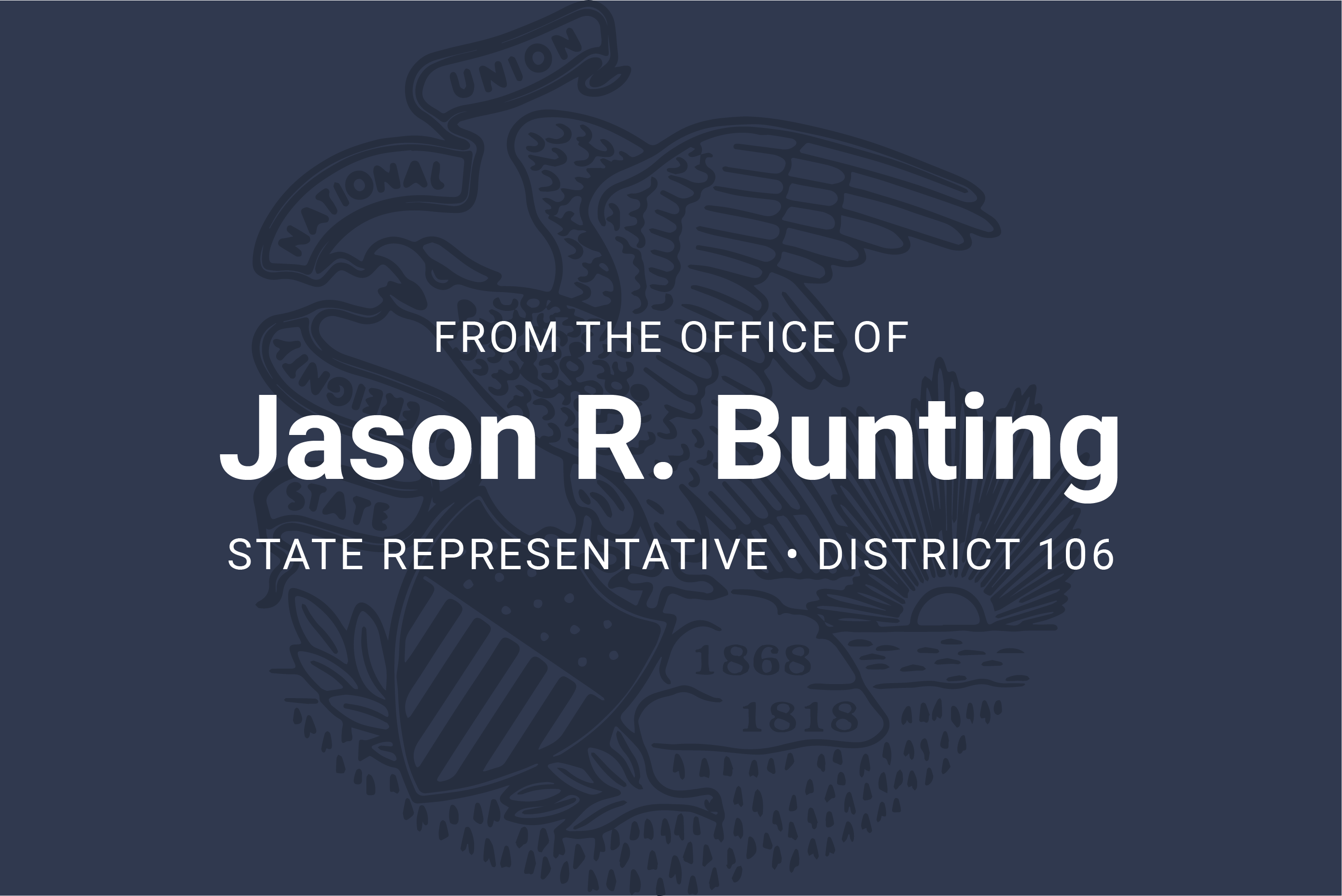In this issue:
- Judge rules against gun ban
- It should be harder to raise taxes
- Recession poses threat to Illinois finances
- Illinois headlines
Thank you for reading my e-newsletter. For the latest news from state government or to share your ideas and opinions, please visit my legislative website at repbunting.com.
Judge rules gun ban unconstitutional, issue now goes to Supreme Court
A judge in Macon County has ruled that the gun ban and gun registry law passed in Illinois back in January is unconstitutional. I was very happy to see this ruling, but the matter is not settled yet as the Illinois Supreme Court will have the final say.
A temporary restraining order was already in place due to the lawsuit. Attorneys for the state of Illinois will appeal the question to the Supreme Court. The Supreme Court will hear the case during its May term.
Meanwhile, four cases filed against the law in federal court have been consolidated and will be heard in the U.S. District Court for Southern Illinois on April 12. There is still much to be decided. I will keep you posted as more information develops.
It should be harder to raise taxes
Twice in the recent past, Illinois politicians have raised income taxes. Both times they did it with only a few votes to spare. If the graduated income tax amendment had passed back in 2020, the resulting tax increase would have only required a majority vote.
I think it should be harder for politicians to raise your income taxes, and so I have joined the effort to amend the state Constitution to require a 2/3 vote in the General Assembly before any tax increase can be passed.
I am co-sponsoring House Joint Resolution Constitutional Amendment 11, which was introduced earlier this year by my fellow Representative, Dave Severin of Benton. It would amend the Constitution to state that the only way the General Assembly can raise an existing tax or impose a new tax is with a 2/3 vote in each chamber. Similarly, it would take a 2/3 vote to override a veto of a tax hike or a new tax.
Possible recession could interrupt plans for state spending
Members of the House Revenue and Finance Committee recently received a briefing from the Directors of the Illinois Department of Revenue and the Office of Management and Budget concerning the possible effects on state spending if a recession occurs in the next year. The directors cited data from economic forecasters which suggested that the national economy is likely to suffer a mild recession this year. The effect on Illinois state government would be negative, both in terms of revenue and spending.
Republicans on the committee raised warnings about the fact that Illinois already trails most other states when it comes to underperforming economies and that we could therefore be hit even harder than other states. Any recession could slow down tax revenue to the state and also interfere with the state’s spending plans. The responsible thing to do at this point would be to rein in some of our out-of-control spending before it is too late.
Our current bill backlog
When a vendor provides the state with goods and services, they submit the bill to the Illinois Comptroller for payment. The Comptroller processes the paperwork and pays the bill when funds are available in the state’s checking account. Currently the total amount of unpaid bills is $2,443,385,167. This figure changes daily. Last year at this time the state had $4.4 billion in bills awaiting payment. This only includes bills submitted to the Comptroller for payment, not unfunded debts like the state’s pension liability, which is well over $100 billion.
Illinois headlines
Public Guardian: More kids sleeping in DCFS offices
Agencies urge preparedness during Severe Weather Preparedness Week in Illinois
Weather outlook not conducive to early fieldwork
Pennycress crop research continues at Western Illinois University
